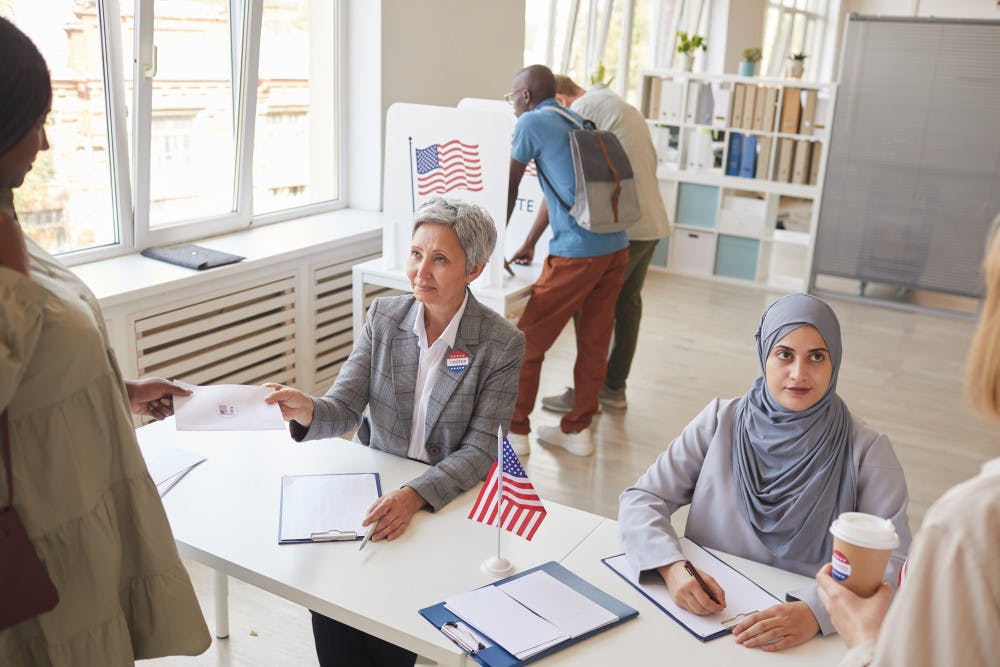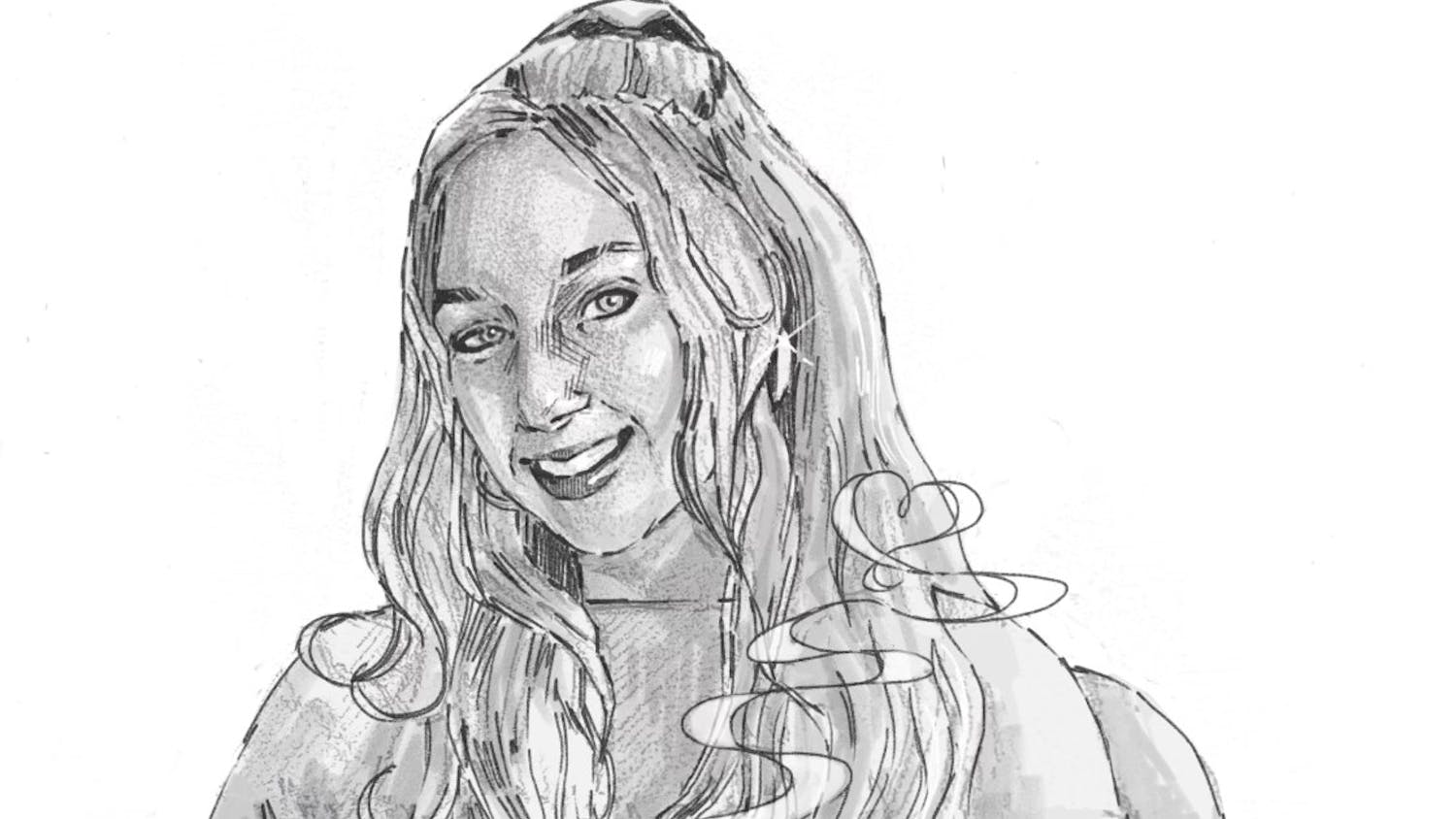By George Tatoris
Sports Editor
On Tuesday, Nov. 8, millions of Americans stepped into voting booths, drew the curtains closed and chose who they wanted to be president. As they filled out that bubble or pressed that button, I’m willing to bet many Americans — regardless of why they chose to vote, their political ideology or even which candidate they were voting for — felt the same exact feeling: like their vote would save the country.

As we neared the end of this ugly campaign, each candidate became a villain to the other side — whether they wanted to form a pseudo-fascist dictatorship and persecute minorities, or were secretly a corporate puppet, or maybe even a secret communist, that must be stopped. We weren’t casting ballots for one side or the other. We were casting ballots to prevent disaster.
Polling data released by the Pew Research Center in 2014 showed that for the past two decades, the percentage of Americans favoring mixed political views dropped significantly — from 49 percent in 1994 to 39 percent in 2014. The data also showed that 27 percent of Democrats and 36 percent of Republicans view the opposing side as a “threat to the country.” While these extreme views are still in the minority, the number is rising.
Another Pew study released in 2014 explored the media habits of individuals on the far sides of the political spectrum. The study separated the polling data into five groups — consistently liberal, mostly liberal, mixed, mostly conservative and consistently conservative.
The study found that while we cannot completely block out opposing views in social media, political bubbles can still exist. Only 32 percent of consistent liberals reported not seeing opposing political views on Facebook. That number was even higher for consistent conservatives at 47 percent, however, consistent liberals were more likely to unfollow or unfriend someone based on politics. Both sides share one thing, though — they’re more likely to vote and discuss politics than those with mixed views.
While this data was released just before the election, another study published by Contemporary Economic Policy in August 2016 found many Americans search for “self-reinforcing viewpoints rather than be exposed to a common ‘nightly news’ broadcast,” which leads to an inability to sympathize with the opposing viewpoint. We need to address this.
The opening line to Simon and Garfunkel’s “America” goes, “Let us be lovers, we’ll marry our voices together.” That song was released in 1968, a time of even greater divide in our nation. In that year, some Americans were killing communists for their beliefs in Vietnam, while other Americans were dying for their beliefs back home — Martin Luther King, Jr. was one of them. The opening line almost pleads with America to stop the chaos.
The rest of the song follows the narrator’s search for America and its meaning. He and his girlfriend, Kathy — the lover in the first line — start their road trip with enthusiasm, but by the end, the only treasure the trip has yielded is an empty box of cigarettes. As the narrator stares out the window at an empty field, he realizes the America he went looking for doesn’t exist. America itself is meaningless. I believe this is only partially true.
America is a blank canvas upon which people imprint their own ideals through voting and being politically active, and everyone is allowed to contribute. Sure, in the end, the canvas looks like a mess, but that mess is America.
This election, like the narrator’s journey, has left many Americans feeling weary and disillusioned, but it’s important that we, as students, remember the ill-feelings are spread all over the political spectrum.
There are thousands of students on campus with different beliefs about where we should go. We can’t belittle someone if they don’t agree. We can’t disregard a voice or unfollow or unfriend someone based on political views, because in doing so, we close ourselves off. More and more we enter discussions with no intention of listening and with no intention of learning, and that is a mindset students should not keep.
We need to listen, not just because we’re students, but because at the end of the day, we are all looking for America and coming up empty.







